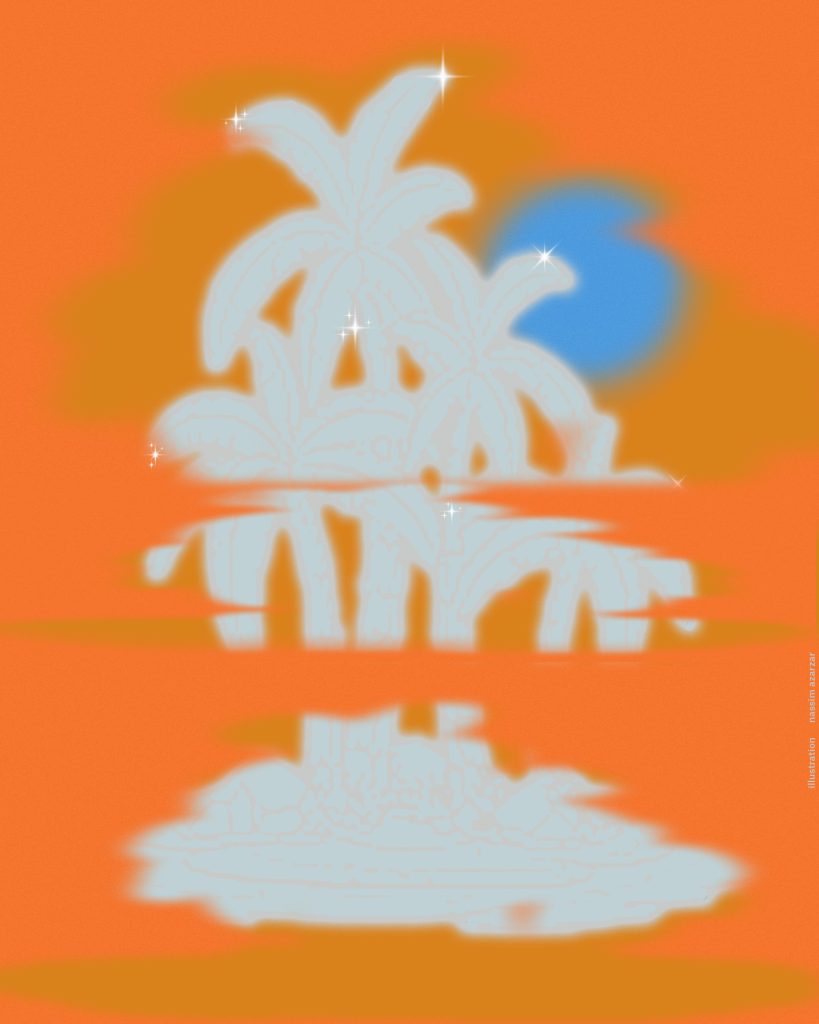AWL_049 About Some Meaningless Events

Film programme curated by Furtado Melville features two remarkable works by Moroccan artists. Cultural activist and artist Laila Hida will introduce and reflect on the films.
The Smuggler by Yto Barrada 2006, Morocco, 11 minutes, silent
De quelques évènements sans signification [About Some Meaningless Events] by Mostafa Derkaoui 1974, Morocco, 78 minutes, Arabic & French, with English subtitles
The Smuggler follows the story of T.M., who has been making routine trips to Ceuta, a Spanish enclave, for the past 30 years. Her objective is to smuggle back fabrics, clothing, and branded goods that shop owners in Tangier have ordered. Despite the constant surveillance by tax and customs officers, T.M.’s age works to her advantage, as they rarely search inside her coat at the border. Against the backdrop of black curtains, T.M. demonstrates how she wraps her body with piles of fabric and finally dons a long djellaba, completely concealing the "tax-free" smuggled goods.
In alignment, De quelques évènements sans signification (About Some Meaningless Events) is a politically charged film which delves into the early post-independence era of Morocco after its liberation from French colonial rule. The film is set in Casablanca, where a group of filmmakers initiate discussions with the locals about their expectations and hopes for the emerging Moroccan national cinema. However, the plot takes a turn when a disgruntled worker accidentally kills his superior, prompting the filmmakers to investigate the motives behind the killing. The film was shot between January and April 1974, and it was never screened in Morocco. The authorities banned it immediately, considering it inappropriate for Moroccan audiences.
About Some Meaningless Events is a film that questions the artistry of its makers and measures it against a society that seems unaware of their work and function as artists. It documents the determination of a generation of artists and filmmakers to transcend cultural limitations and participate actively in the social movements aimed to shake up their society. The film effortlessly blends documentary, improvisation, and fiction. Its collaborative nature extends beyond its content portrayed on screen and encompasses its very creation, which relied on a network of complicit solidarity.
Part of the program Laila Hida – Artist In Transition 2-5 May 2023, with artistic exchanges and visits to de Appel and The Niteshop amongst others. The four day programme is initiated and curated by Furtado Melville. Special thanks to Tim Leyendekker, Lara Khaldi and Léa Morin. Graphic design by Nassim Azarzar.
On Tuesday 2 May 2023 from 5 to 6 PM live on Radio WORM: a conversation on Moroccan cinema between Laila Hida and Yto Barrada.
About the participants:
Laila Hida (Casablanca, 1983) is a Moroccan artist and cultural activist based in Marrakech. Her work explores the intersection between vernacular and contemporary practices in local and global dynamics, questioning projections and frictions of desires, ideas, and concepts from manufactured fantasies about the East and the West. In 2013, she founded LE 18 Marrakech, a multidisciplinary cultural space in the medina of Marrakech. LE 18 programming provides a platform for artists, curators, and researchers to experiment, learn, and share knowledge and experience through exhibitions, meetings, workshops, and residencies, creating social and creative networks that benefit local communities.
Yto Barrada (Paris, 1971), a Moroccan artist based between Tangier and New York City, explores themes of survival, resistance, and political courage through her work. Her art encompasses a wide range of subjects, including, fossils, modernist histories, and the geopolitics of migration. Barrada returned to Tangier in the late 1990s and began The Strait Project, documenting the impact of the Strait of Gibraltar and Morocco’s constricted border following the European Union’s 1991 Schengen Agreement. In addition to her art, Barrada founded Cinémathèque de Tangier, a cinema which allows public access to a growing collection of films from North Africa and the Middle East.
Mostafa Derkaoui (Oujda, 1944) is a filmmaker and pioneer of modern Moroccan cinema. He graduated from the Lódź Cinema School and lives in Casablanca. Since returning to Morocco in 1972, he has continued the explorations he began in the student films he made in Poland, for a free and socially-engaged cinema that could contribute to both decolonial thought and the search for a Moroccan cinematic identity, and which would also encourage formal innovation and radicality.
Alexandre Furtado Melville (Tarrafal, 1988) is a Cape Verdean-Dutch artist, writer, critic, and entrepreneur who believes that everything is political. Furtado Melville directed his first film, Noise in the Hood, as part of the exhibition There is no party so noisy as the one you’re not invited to at TENT Rotterdam in 2023. Furtado Melville is currently a partner and business director at Concrete Blossom, the chairman of the Steenbergen Stipendium for young Dutch photographers, a commission member for visual arts for the City of The Hague, and the creative director at Furtado Melville. He is also working on his first book, an autofiction with the work title God is Alive, about Europe through the eyes of the black African migrant.
Nassim Azarzar (Rabat, 1989), a Moroccan artist based between Rabat and Paris, develops research around imagery, even popular imaginaries by exploring their different forms, occurrences and devices of representation in a Moroccan context. For several years, he has been developing an ongoing project called Bonne route, dealing with decorative practices applied to trucks transporting goods between the port cities of Tangier, Casablanca and Agadir and the Moroccan villages of the Atlas and the Rif mountains. Azarzar’s aesthetic research revolves around decorative arts, painting, drawing, sculpture and experimental cinema.
The visit of Laila Hida is made possible by WORM Rotterdam, and by the International Visitors Programme of @nieuweinstituut with support from the Netherlands Ministry of Foreign Affairs.